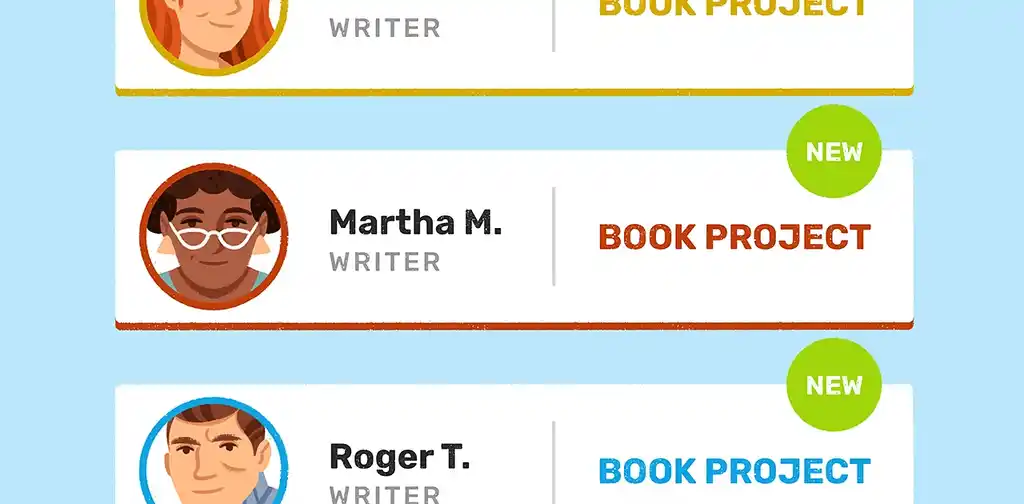Blog •
Posted on Mar 08, 2022
Live Chat: In-House vs. Freelance Work in Publishing
About the author
Reedsy's editorial team is a diverse group of industry experts devoted to helping authors write and publish beautiful books.
More about the Reedsy Editorial Team →This is the transcript of a special webinar, in which Martin, our Reedsy Live host, talked to two publishing professionals about their experiences in the industry. About our guests:
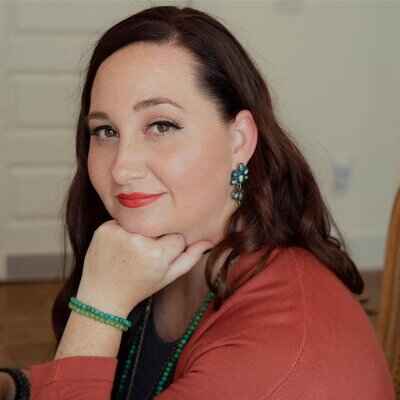 As an editor, Alice Sullivan has worked on 11 New York Times bestsellers from authors, ranging from politicians to world famous comedians. She now specializes in ghostwriting memoir, self-help, and personal growth, and her clients include Shakila Neil and George Foreman.
As an editor, Alice Sullivan has worked on 11 New York Times bestsellers from authors, ranging from politicians to world famous comedians. She now specializes in ghostwriting memoir, self-help, and personal growth, and her clients include Shakila Neil and George Foreman.

Alyssa Matesic is a fiction editor with tours of duty at Penguin Random House, Macmillan, and The Book Group, a top-tier literary agency, where she’s worked with the likes of JP Delaney and Katherine Stedman. She's now a freelancer on Reedsy, editing thrillers, historical fiction, contemporary women's fiction, and memoir.
This transcript has been edited for clarity.
(Scroll to 3:40 for the start of the discussion)
Ways to enter the traditional publishing field
Martin: First of all, Alice, everyone loves an origin story. Can you tell us about your first job in publishing? What was the job that got your foot in the door?
Alice: My very first job in publishing was when one of my professors hired me right after graduation from college to edit his material. He paid me $12 an hour. That was the first time I thought, “Oh my goodness, somebody will pay me to do this.”
As for my first job at a publishing house, I was an editorial assistant, which meant that I did everything. I ran errands, I opened the mail, and then gradually learned how to edit.
Martin: Alyssa, the editorial assistant job, is that familiar to you?
Alyssa: Absolutely. That was my first full-time job out of college. I was at Penguin Random House in the editorial department at Ballantine Books.
But my first internship was actually in London at a small independent press. That opened my eyes to editing as a career. I was doing more line editing/copy editing, which was fun because I was working with British authors. Back in those days there were things that I would correct only to be told that it was the Americanized spelling, which didn’t fit the market. So it was a learning experience over there in the UK.
Then I came back to the US, had a few more publishing internships, and then had that first editorial assistant job.
Martin: Is that quite a normal progression — to start with the editorial assistant position, and then going onto proofreading and copy editing?
Alice: For my experience, it was. But I think nowadays more people are getting hired right out of college at higher-level positions. If you’ve got a masters — whether that’s in journalism or creative writing — I think there is maybe more opportunity to step right into a role that’s a little more hands-on than an editorial assistant would be.
There are also programs now that are focused on book publishing, so people are now coming out of university with a lot more knowledge than I had when I was 21.
Martin: Quite a few of the editors I've spoken to here in the UK seem to go through the bookstore-to-editorial-assistant pipeline. There seem to be fewer creative writing MFAs, and more often graduates of history and English literature programs who would work at a bookshop for a few months or a year, up to the position of a section buyer, which is a good launch pad to publishing houses.
Did you do a degree in creative writing or publishing Alyssa?
Alyssa: Yes, I majored in English literature and creative writing, and I did a minor in creative writing as well. I also went to NYU where there was a certificate in book publishing. Oftentimes, people who didn't have an undergraduate degree in a related field would come into that certificate program, but I was lucky enough to do that along with my undergraduate degree.
So I had a toe in all three of those major fields that set me up for an internship and subsequently a job in publishing.
Dealing with uncertainty and choosing projects as a new freelancer
Martin: For many of us, the middle-class dream is to work for a big company, climb your way up to the upper middle, and then retire. Which is why, when we talk about freelancing, one big thing we’re concerned about is the uncertainty of it all.
Alyssa, was there a moment of realization that led you to freelancing in spite of the uncertainty?
Alyssa: For me, it was a pretty cut and dry decision. I moved out of New York, and it was pre-pandemic, so there was no opportunity for me to continue my job remotely.
I was at a moment where, in order to continue doing the work that I loved (working with authors on their books), I had to freelance. I had another full-time job in a different field to supplement my freelance work, because I was really afraid of that uncertainty.
Then, when I got to a point where I saw a pipeline — a way to support myself with freelance projects — I took the plunge, quit my full-time job, and leaned into what I was passionate about, which is working with novelists.
Martin: That's one of the challenging things of working in publishing — in many cases you’d also have to bear the cost of living in expensive cities like New York or London too. Alice, were you in New York or a big city at any time?
Alice: No. Nashville is a small city, but we have a lot of publishing houses here — mostly faith-based — and it was not difficult to get a lot of freelance work.
In fact, I started freelancing while I was still at my publishing house because there were so many smaller presses nearby. It sounds like a drug deal now, but I used to meet other editors, and then somebody would come to my house after I got home from my corporate publishing job, drop off manuscripts, and then pick them up later in the week.
I freelanced on the side for six years until I decided to go freelance completely. For four of those six years I was employed at the publishing house, and the latter two I spent in healthcare clinical editing, which paid a lot more money, but unfortunately was — I felt — soul-sucking. I did that for two years though, because I was told that it looked better on your resume if you stay at a company for at least two years. It never occurred to me that it doesn’t matter if I quit. When I quit that job, it was really out of desperation — I was miserable and I just knew something else was going to be better.
I had retained all of my contacts from publishing then, so I told everybody, “Hey, I'm doing this on my own. Please send me work.” and hoped for the best. Thankfully, it worked out well! Yesterday was my 13 year anniversary of being self-employed.
Martin: Congrats!
You do hear a lot more about freelance work coming in from traditional publishing houses nowadays than perhap 20 years ago. You have worked there before — how picky can you be about what publishing houses send your way, and when they do it? Do they offer you a variety of projects and you get to choose what interests you?
Alice: It's a little bit of that — the further I got away from working in-house, the more I was able to pick and choose who to work with, which genres, how much I was willing to accept financially, and what I can afford to turn away.
But at first, when you're trying to build those client relationships, you say yes to most things, because you want them to send you more work. In the first four to six years, I said yes to most things because I'm financially driven and I still had to work through that fear of not getting enough jobs down the line. I may have plenty of work now but what if nobody sends me anything for the next six months? Am I going to be able to pay all my bills?
That feast and famine, it’s a process that most freelancers have to go through.
Martin: Alyssa, when you went freelance, was it to do different types of work — were you seeking specific types of books that you weren't getting at your in-house job?
Alyssa: I would say it was to lean into what I determined was my passion based on what I learned when I was in-house. Working in different editorial roles in the industry really allowed me to figure out what books I loved, what books I hated, and what types of authors I love to work with.
Then when I went freelance I definitely went through a similar process to what Alice was describing. I was so afraid I wasn't going to be able to support myself with freelancing that I took on projects that maybe weren't ideal to work on from my perspective, in terms of what I love to read. And that is fine. I learned a lot from those experiences, I've made great relationships with my clients — I don't regret taking on those projects at all. But then — and this is something I’m still working toward — I was slowly able to choose projects that really suit my skill set and that I love, where I can really serve my clients in the highest possible capacity. We're then really able to form that editorial connection.
That's absolutely something freelancing enabled me to do. When you are working in-house, in the best case scenario, you're working on genres that you love. That’s not always reality however — not every project falls into that category, there’s always going to be work that isn't necessarily what you would have chosen to do on your own.
You hear about high turnover rates at publishing houses, especially these days in editorial. Any time an editor leaves, the books that they have acquired have to go to someone else. That means that you not only are working on the books you acquired and the authors you brought on to the publishing house, but you’re also inheriting projects from other people. That can lead to burnout.
It's a big benefit of freelancing, once you get to the point where you’re able to be a bit choosy. And it's not just a matter of working on the stuff that you like, but also about serving those clients because that's what you're the best at doing.
Martin: Alice, are there non-creative tasks from your in-house days that you don’t miss?
Alice: Well, it was my job to send out contracts — that was a part of the job that wasn’t very creative. What else did I do? I learned how to make coffee. That was seemingly important.
Surprisingly — or not surprisingly — we got a lot of mail from local prisons. And so another part of my job is opening mails to make sure that there was nothing that needed to be reported.
Martin: Was it like a bunch of Andy Dufresnes who were requesting free books?
Alice: A lot of it was, and that was sweet. There were also people who had time to practice their drawing, so we received a lot of art from prisoners. Those who wanted to be published would send in short stories and portions of the books that they had written. Unfortunately we weren't able to respond to any of them, so part of my job was actually just opening the mail and throwing it in the trash, which was kind of a bummer.
Martin: I guess, there's only so much of that you could do in a day.
One of the things that both of you mentioned was the idea of financial pressure when you first go freelance. Nowadays, how full does your calendar have to be, looking ahead, for you to be comfortable? How does that compare to when you first started?
Alice: I like to book six months in advance — if I can book longer, that's great. But I will also say, having freelanced this long now, thankfully with good SEO on my website and visibility through Reedsy, I get around 8 - 13 queries a month. Now, most of them actually aren’t a match for anything that I do, but since I have built such a large network, I'm able to pass off most of that to other people.
So I’d love to be booked out for six months, but I now have 13 years of evidence that shows me that something's always going to come in. I do still get a little concerned when there's a lull, but not as much as I used to.
Martin: Alyssa, does six months sound about right for you as well?
Alyssa: Yes, I would say a few months, at least. Something I didn't really anticipate being a concern when I started freelancing and managing my own calendar is that while I try to book out as much as I feel comfortable with, I now also want to build in a little bit more flexibility into my schedule. If an amazing project from someone I really want to work with comes up within the upcoming six months, I don't want them to go elsewhere because they’d have to wait almost a year to work with me.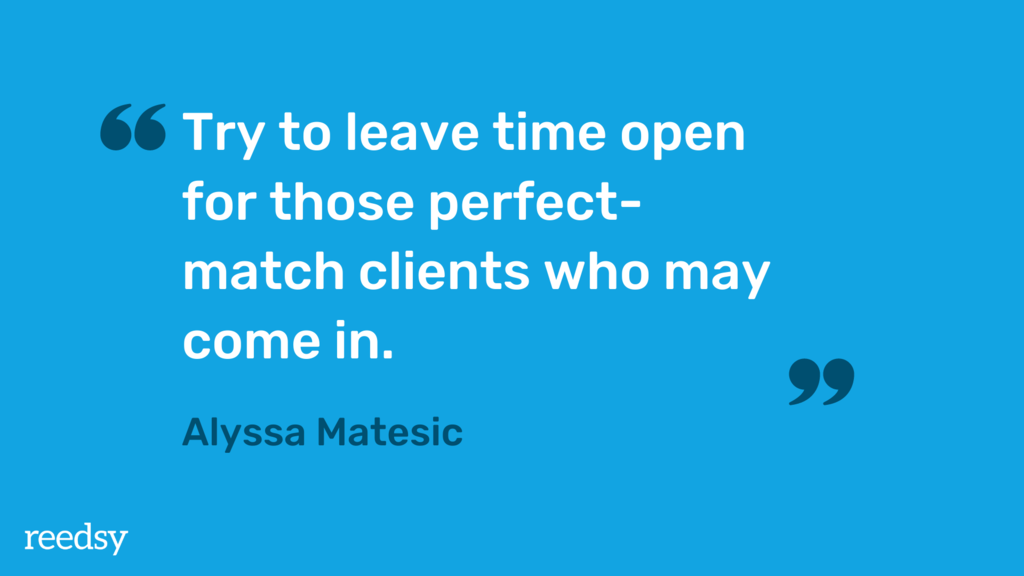 So for anyone who's starting to freelance, I’d advise considering that and maybe booking a free slot every two months — leaving that time open for those perfect-match clients who may come in. You don’t want to miss out on opportunities that could be really amazing collaborations that lead to really great relationships. It's a balancing act for sure.
So for anyone who's starting to freelance, I’d advise considering that and maybe booking a free slot every two months — leaving that time open for those perfect-match clients who may come in. You don’t want to miss out on opportunities that could be really amazing collaborations that lead to really great relationships. It's a balancing act for sure.
Where to find freelance publishing work
Martin: Before Reedsy, where would you say most of your jobs came from?
Alyssa: For me, it was definitely my personal network. That said, signing up to Reedsy was one of the first steps I took as a freelancer. I was lucky enough to get on the platform relatively early and was able to build up my clientele through Reedsy.
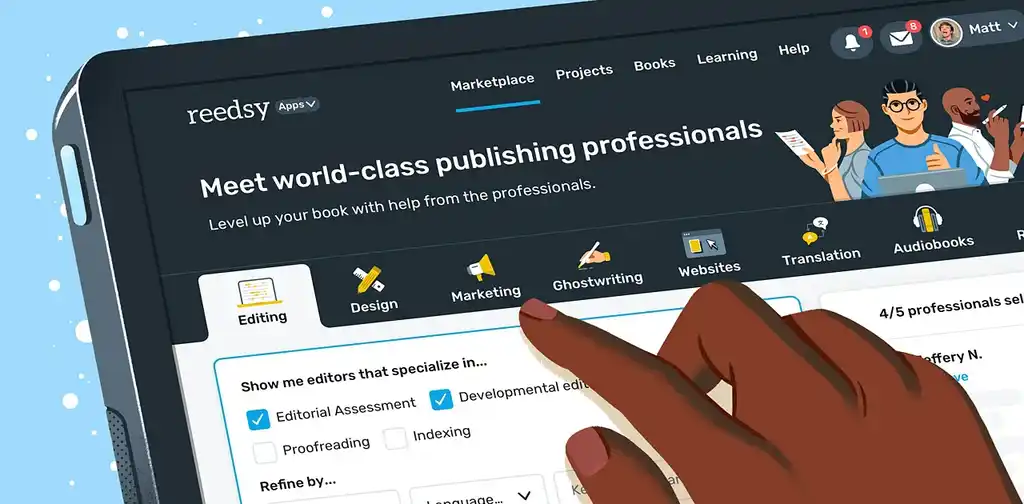
JOIN OUR NETWORK
Supercharge your freelance career
Find projects, set your own rates, and get free resources for growing your business.
Before that it was just people I had worked with in publishing, people I had worked with outside of publishing but who then learned that I was a book editor. There are always people who know people who are writing a book, and you kind of connect that way.
Now, I’ve launched a YouTube channel — that has also brought in a lot of people directly to me.
Martin: Alice, you work mainly as a ghostwriter these days. Do you get a lot of independent clients? Do they contact you directly?
Alice: I do. I would say 80% or so of the people I work with are private clients who decide to self-publish or do some combination of hybrid or custom publishing. Every once in a while I do work with agents and publishers — I still have those connections. But more and more, especially if somebody is writing a memoir or self-help with personal growth, development, inspirational, but also brand awareness elements to it, they are choosing to self-publish. That way they have more control over the content, the process, and the timeline.
I will say that I get a good portion of my work through Reedsy. The remainder of the clients come through my website or personal connections.
Around five years after I left the publishing house, I taught a workshop with a friend of mine at the church we both attended at the time. It was so well attended that we did it for two years in a row. 12 people from that workshop wrote and published books. So if you ever have the opportunity to teach a workshop — even something that seems like a small time investment like that can really make a huge difference.
Martin: Alyssa, you started fairly early with Reedsy. I suppose there aren't too many other similar sites.
Alyssa: I did make a Fiverr profile when I first started freelancing and I found the quality of clients was not a match in the vast majority of cases. I wasn't seeing the quantity or the quality of requests that I was seeing through Reedsy. So I eventually shut down my Fiverr and then was able to work through Reedsy and through my direct channels.
Martin: I think the very name of Fiverr set the baseline later for five bucks fees, which is a lot to negotiate up.
Working in a team vs. working one-on-one with private clients
Martin: Alyssa, in terms of how you worked with authors and clients, how has the collaboration process changed when you go from in-house to freelance?
Alyssa: I would say when you're working in-house, you're always part of this team. If you’re editorial, you might be the primary point of contact with the author, but the author’s agent always has their ear to the conversation. There are other members of the editorial team, the marketing team, the editorial director, and the publisher involved in these conversations as well.
And that creates a different type of environment. In a lot of ways, it's very fruitful to have that team mentality where you're all working together to create the strongest book possible. And you all have a relationship with the author.
Freelancing is much more of a one-on-one relationship. It's just you two working together for a specific amount of time on a specific task. So it's much more narrow in focus. The mindset is that we're going to accomplish this together and, in a way, that creates a really satisfying conclusion to the collaboration. I try to stay in touch with my authors after we've completed the collaboration for as long as I can, but this way, at least at the end of it, we can say, “Look what we accomplished together.”
I like how the relationship is much more direct and one-on-one in that way, and it’s something you don't get when you're working as part of a team.
Martin: Alice, you have a lot of private clients, but you also do ghostwriting work for publishers. How is the working relationship different, when you have the buffer of the publisher client versus when it's the author client who pays you directly at the end of the day?
Alice: Both avenues can be wonderful. What I have found when working through either an agent or a publisher is that we have at least one more person in the mix. So sometimes it is a little slower because you're waiting for somebody else to do something before you can proceed. Or everybody all needs to be on this Zoom call instead of just the two of you.
I actually prefer working one-on-one because it's just easier for scheduling and communication. I also love the teaching aspect of what I do: I educate people both on the publishing industry, and the writing and editing processes. It creates a lot more momentum and trust, to work one-on-one. Of course, the teams can be fantastic, but it just adds one more cog into the mix.
Martin: Do you find a lot of pushback with private clients? Do you have to convince them that what they want isn't necessarily what they need, or are they very receptive to your suggestions?
Alice: I think my work with private clients is often easier. Thankfully, most of them read my website, so they know I have accomplished a few things and therefore I know what I'm doing. Most people come with an open mind and they're aware of their own blind spots. So I find that most are very eager to learn about the process and what they can be doing better.
Some people who come to me and they have no fleshed out idea. As in, they have the idea of writing a memoir — but what about? Is it about your teenage years? Is it focused on one topic? Thankfully it doesn't happen often, but sometimes people come to me with nothing more than an idea and maybe a few notes that they took on their phone. Then it's my job to pull everything out of them from there.
Other people come with content already written, or a workbook that they have been using for five years that they want to turn into a self-help book. So it's all kinds of people, but everybody is really open to collaboration and learning throughout the process.
Martin: That sounds like the ideal setup.
Setting rates as a freelancer
Martin: Alyssa, here's the question everyone is asking. On Reedsy — and pretty much anywhere else — freelancers set their own quotes for any projects. Hopefully the rate reflects the work involved, the value of the work, and also is enough for you to live a fruitful life. How do you determine your rates when you started freelancing, and have those rates changed over time?
Alyssa: The very first metric I used to set my rates was actually the Reedsy calculator. I found it on the Reedsy blog. You could put in the length of the manuscript and the genre, and it would give you an average per word rate. I always charge per word for my type of editing (I offer editorial assessments and developmental editing). So I have a per word range that I calculate within those two services that I offer.
When I was a baby freelancer, I tried to calculate an hourly rate, but it was not really based on anything concrete. So I switched to per word rates and used the Reedsy calculator as a base rate — I found that really helpful. Then I found some other rates on the Editorial Freelancers Association’s website. I cross-referenced with those as well.
As I grew, I really was seeing how many hours I was putting into a project. And I was able to determine what my personal rates are, which are now higher than what I started with, as I gained experience, knowledge, and expertise in the services I'm offering. It's an iterative process, for sure.
Martin: Alice, ghostwriting is a much bigger endeavor in terms of the quantity of work required for a single project. I guess it can absorb quite a lot of your life, for at least months. So how do you set your rates?
Alice: At the start, I used the rates that we paid our freelancers at the publishing house because I didn't know any better. It was probably five, six years into my freelance career when I asked my lawyer, who does my contracts, “Hey, am I charging in the range of what I should be, based on my years of experience?” And she said, “Actually, you're charging less than half.” And I thought, oh crap. I had no idea.
You may have experienced this as well — when you're at a corporation, you are not supposed to talk about how much you make. You’d get a hand slap from HR. I have had that happen several times. So there's this feeling of secrecy. When I became a freelancer, I carried that secrecy with me. I didn't even think to ask my peers, “Hey, what are you charging? Is this about the range you would offer for this project?”
I had to relearn that when you’re a freelancer, you are your boss, you are your HR, you are your marketing and publicity person. It's in your best interest to learn as much as you possibly can, including the going rates for what you're doing. 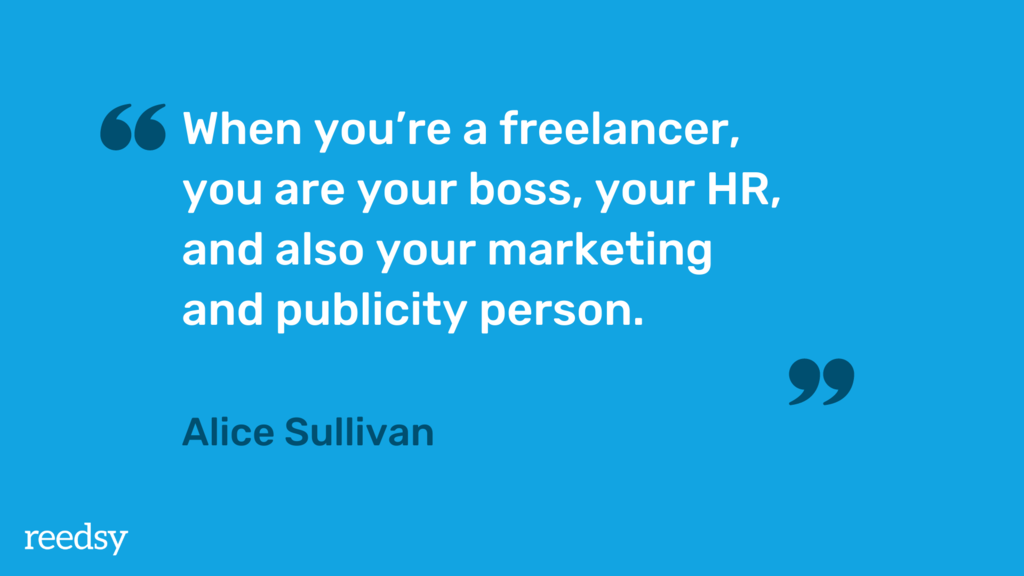 I used the EFA a lot in those early years. And I now charge five times what I did when I first started. I would not have even known that there was an area for somebody at my price point, unless I had asked other writers.
I used the EFA a lot in those early years. And I now charge five times what I did when I first started. I would not have even known that there was an area for somebody at my price point, unless I had asked other writers.
Martin: I am in the process of updating that calculator that Alyssa mentioned next week. We've had so many more requests over the last few years and we've seen the average rates go up. And so it's going to be reflecting that, plus inflation, which has not been kind. We want to make sure people aren’t starting off on selling themselves too low.
Although, having been privy to some of the anonymized data, we do see some folks who have tremendous background but are sending quotes that are significantly lower than some new editors. So some amount of transparency between editors is definitely a good thing to have.
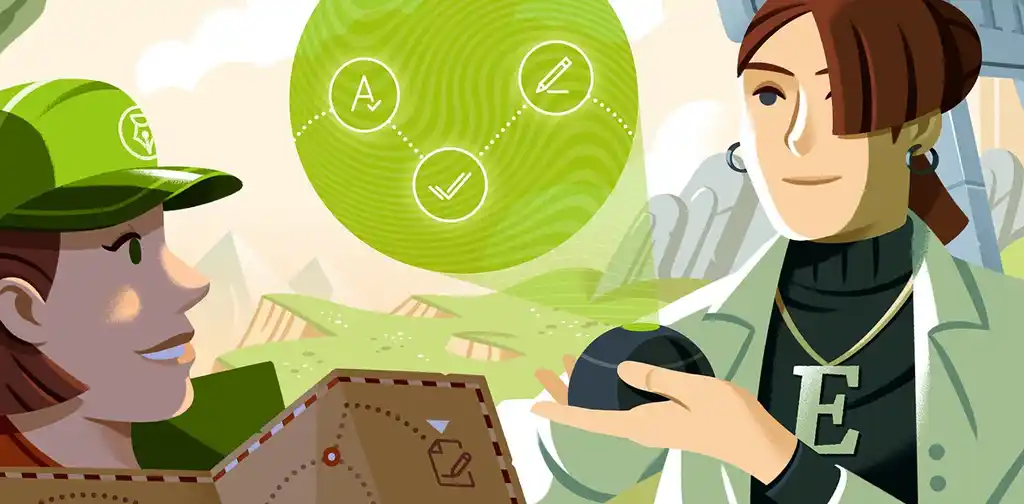
FREE RESOURCE
Offer Letter Checklist + Template
Follow our tips to successfully sell clients on your services while setting clear expectations.
Q&A section
These were questions brought by viewers during the session.
Do publishing houses have their own editing process?
Alyssa: If you're talking about the Big Five (or potentially Big Four) publishing houses, there is a blanket process. That said, the specific editing style is all going to depend on who you're working with — as in the actual editor who acquired the book.
In general, the literary agent will, in some cases and to varying degrees, act as a developmental editor. Agents have different amounts of interest in editing their clients’ books. The agents I worked for were highly editorially involved, which allowed me to also be editorially involved. But some agents really just want a clean, polished manuscript that they can send off to the publishing house.
When you're working in-house and editorial, you are on the developmental editing side of things. If you're working as an acquisitions editor, you will be responsible for acquiring a project from a literary agent and then acting as the developmental editor for that book — meaning you’ll work through the plot, the characters, the length, and make sure there are no plot holes, the story’s effective, the overall voice is there, and the point of view is what it needs to be. Those big picture elements are really what acquisitions editors are focused on.
And then, at Big Five publishing houses, once the acquisitions editor, the author, and the literary agent all think the story is in a really solid shape, it will go to a copy editor and then a proofreader. And in many cases, those latter professionals are actually freelancers. In some cases they have in-house teams for these final steps, but I think more and more these days publishers outsource the copy editing and the proofreading to freelancers, maybe people who have exited the industry or people who specialize in that type of editing.
That's my experience at the Big Five publishing houses, but different sized publishers operate differently.
Martin: Alice, having been in publishing a little further back, have you found that the structures of work have shifted within that time? Is there now just a core team of editors who divvy out work?
Alice: I'm sure it varies from publisher to publisher, but back when I was in-house, we were taking on so many projects, trying to compete with the other larger publishers, that I was not doing a ton of editing — I was more of a project manager. In some cases, to hit the timelines, we would even farm out the developmental work to editors who had worked there before and were now freelancing, or just people for whom that was their specialty.
As unfortunate as it is, over those 4-5 years that I was in-house, there were some books that we put out that I didn't even read fully. There was not the time to do so because I was working on 15-20 books every quarter.
I would love to see that change, but I'm not sure that it will, based on how many books people are having to put out to compete with each other. That said, my experience was back in 2003-2007, so that has been a long time ago.
What management tips would you give your pre-freelance self?
Alice: One of my biggest lessons to anybody else is make sure you set aside 30% of every dollar you make for the IRS or for taxes. I was not so great at that at first, and it really does catch up to you. There was one year in particular when I said yes to everything. I sent out 384 invoices that year, including for things like reading my friend's emails to the CEO. They were like, “Just send me the invoice for $5 or $10.” And I wanted to make that money.
So if I had to do it all over again, I would do a better job of saving.
And I would have set boundaries early on as to what I was willing to do, and what I would pass off to somebody else or just flat out say no to. For me it was very easy to work so much that I had no life whatsoever outside of work. It got to a point where my friends and family would call, and the very first thing they would say was, “I know you're busy, but…” because I had become known as a person who was so busy, I didn't have time for anybody else, which is awful. One of the reasons to go freelance is to make a better life for yourself, to have more time, to spend more time with your family and your loved ones and on your hobbies.
So boundaries and money, I would say, get those two things in order from the start and you'll have an easier time.
Martin: Alyssa, is there anything you would tell your fledgling self?
Alyssa: The 30% thing is huge. However you keep your books, however you calculate your rates, make sure you deduct that money that's going to go to taxes.
If you're working through a platform, include the fees, too. Any type of payment structure other than a check has a fee, so make sure you're deducting that from each of your quotes as well. That way you know how much you're actually taking home. Because it can be deceptive — it’s not just what you put on the invoice.
And then to echo the conversation about burnout — I wanted to escape the burnout by going freelance. And yet I think I became the most burnt out I've ever been. So it’s a myth that freelancing is just going to be smooth sailing and flexible, because your work-life boundary completely dissolves.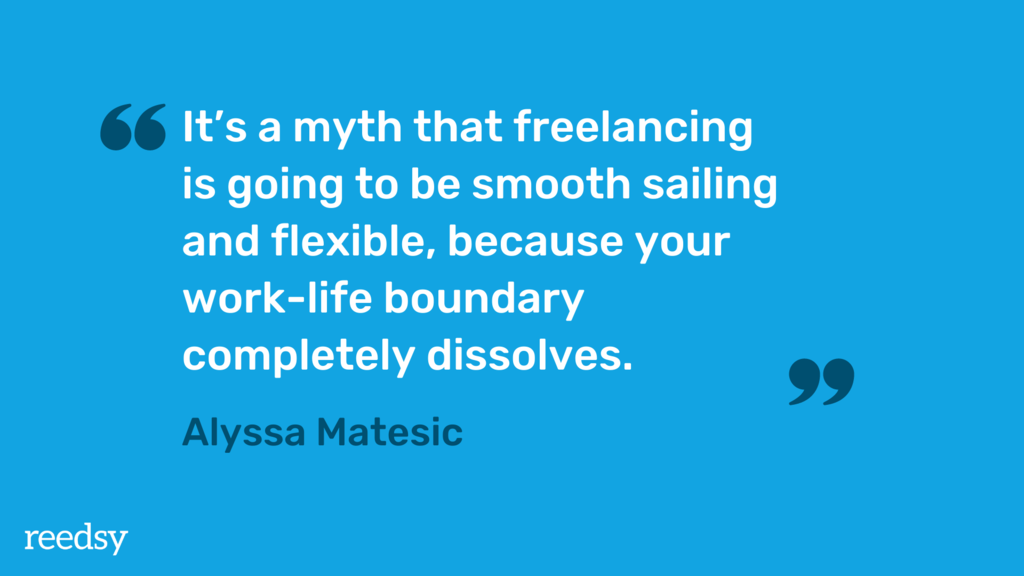 Taking time off is something I am struggling with. If my partner wants to go on vacation, it's like, “Well, I'm booked out six months in advance.” That work has to get done. I can do it from the beach, but do I want to? You really have to look at your calendar, block off that time for yourself, give yourself vacation days so that you can properly schedule your breaks. Otherwise you're going to be working nonstop. Your clients are going to come to you with requests and you're going to keep saying yes, unless you set those clear boundaries.
Taking time off is something I am struggling with. If my partner wants to go on vacation, it's like, “Well, I'm booked out six months in advance.” That work has to get done. I can do it from the beach, but do I want to? You really have to look at your calendar, block off that time for yourself, give yourself vacation days so that you can properly schedule your breaks. Otherwise you're going to be working nonstop. Your clients are going to come to you with requests and you're going to keep saying yes, unless you set those clear boundaries.
How do you set your work time in a day as a freelancer?
Alyssa: I think it's the challenge of leveraging the flexibility of being self-employed while giving yourself that off time.
Some days, I have to go to a doctor's appointment or do an errand in the middle of the day. I have the ability to go grocery shopping at non-high-traffic times because I'm self-employed. But if I take two hours to do that in the middle of the afternoon, that time has to be made up somewhere — maybe in the evening.
Everyone schedules their time differently — for some, it is nice to maintain that nine-to-five, regular working schedule, as though you're in a corporate environment. For me, I'm trying to balance things, with a set goal of working X number of hours for each day. Maybe it's not going to be 9:00 AM to 5:00 PM, depending on what I need to get done that day and my personal responsibilities. But I do try to stop at some point.
Martin: Alice, have you ever taken the advantage of the whole freelance setup and work from a different location?
Alice: Yes, last week I was in a cabin during a work retreat.
I actually taught and worked in Bali in 2016 for two months, which was great. It was great and crazy because the time zone change was nuts. I was teaching writing workshops during the day and getting back to my room to write two books — both had to be done while I was in Bali. It was frantic and I don't even know how I slept.
But the books were great, they got done. I absolutely can work on vacation. One of many of my big struggles with time management is actually that I would love to take a vacation and not work at all. It has been really hard for me to fully disconnect. I've even tried to trick myself into it by not packing the laptop with me and just bringing my phone. But then I panicked, thinking that I can't do any work on my phone, and bring the laptop anyway.
For example, last month I was skiing in Tahoe. It was meant to be a vacation, but I only ended up skiing for one day. I sat in the room and I worked the rest of the time because there's always work to be done.
I think that's one of my areas of growth this year: putting myself and my time first. And also letting my clients know about it. I do this in the contract now: I have a back page in my contract that says “These are my work hours. If you message me after work hours — at night or on the weekend — I will get back to you at a certain time.”
Once the client has okayed it, it's up to me to uphold those boundaries and not check my email at 9:30 or on the weekend. And boy, that's a struggle, but I think it's worth it to carve out the time for yourself. We need it. If we're not at our best — or even half-best — we're not going to do a great job with the books that we work on, or in life in general.
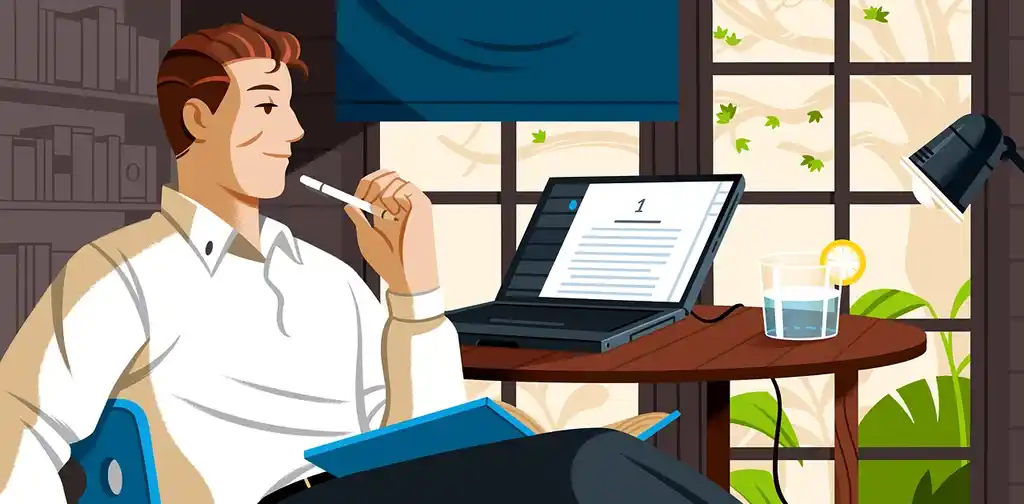
FREE RESOURCE
The Full-Time Freelancer's Checklist
Get our guide to financial and logistical planning. Then, claim your independence.
Given the opportunity, would you go back to an in-house position?
Alyssa: At this time? I don't think so. I am really enjoying the growth opportunities of having my own business. Being able to see how my work can evolve, creating those direct relationships, having complete control — it's definitely tougher than I could have imagined, but it's also more satisfying than working for someone else.
Alice: My answer would be absolutely not. You could not pay me enough and that is the truth. You can't pay me more than I'm making now as a freelancer to go back to a corporate job. After 13 years, I can finally say that.
I'm in a really great place in my career and I would not give up the freedom over who I work with, the projects I work on, and setting my own rates for anything.
It's fantastic, and it’s also scary. You will have to pay your own health insurance and taxes as a freelancer. And finding work won’t be easy — back when I left the publishing house, I didn't even know that this life was possible for me. But I'm glad to help other people see that it is. I do my best to mentor other people into the career of ghostwriting for a living.
How can you build up your freelance portfolio?
Alice: How I did it was probably not the most efficient way. Back in the day, I mailed out something like a hundred hard copy resumes to everybody I could think of within a 50-mile (sometimes 100-mile) radius. There were so many publishing places nearby.
I networked as much as I possibly could. I researched and found all the editors’ names at all the publishing houses. I was kind of an annoying fly. I had hoped (perhaps naively) that of all the hundreds of people I connected with, if three or four gave me a shot, then I would have enough to at least put on a resume. And after that, with a better resume, somebody else will give me a bigger shot. 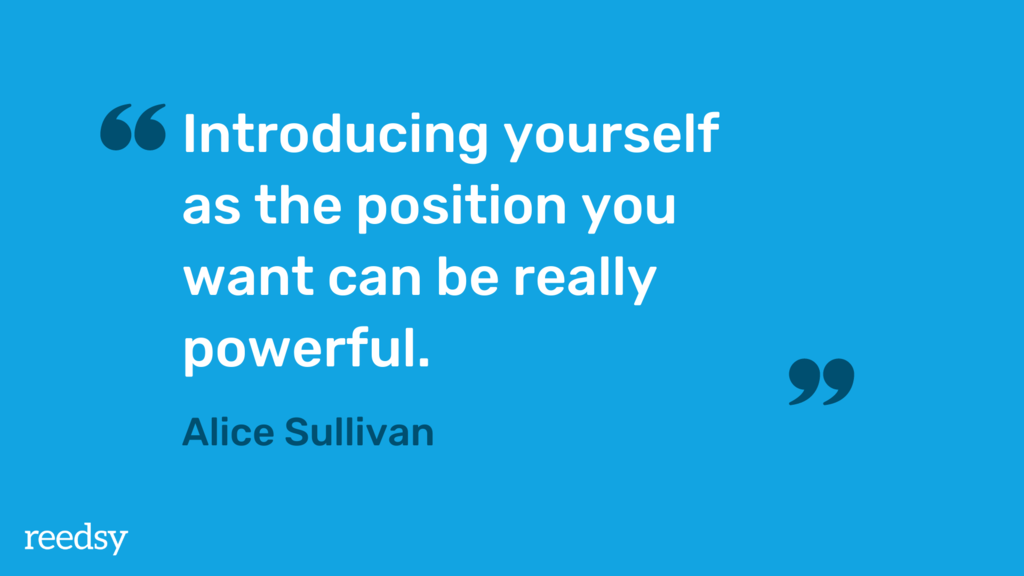 When you network, introduce yourself with your profession. Say that you are an editor or a proofreader. That was a big one for me as well, to introduce myself as a ghostwriter, instead of just meekly saying, “Hi, I’m Alice.” and moving onto the snack table. Introducing yourself as the position you want can be really powerful because then people will go, “Oh, really tell me about that.” and you start a conversation that they’ll remember.
When you network, introduce yourself with your profession. Say that you are an editor or a proofreader. That was a big one for me as well, to introduce myself as a ghostwriter, instead of just meekly saying, “Hi, I’m Alice.” and moving onto the snack table. Introducing yourself as the position you want can be really powerful because then people will go, “Oh, really tell me about that.” and you start a conversation that they’ll remember.
That would be my suggestion — do all the research, go to all the networking events, connect with as many people as you can and be determined. Do not be swayed by somebody’s “no” because somebody else will say yes.
Alyssa: I would say when you're just starting out, scoop up whatever projects come your way. I know we talked a bit about being choosy, and I think that will come with time and as you determine your own expertise. When I started, I didn't know that my expertise was XYZ genre and the two services that I offer — I was offering every service.
When you're starting out, especially if you don't know yet where your true skill set lies, take on projects that might not be what you ideally envision yourself doing. Say you envision yourself being a book editor, but someone wants you to read their cover letter or resume and proofread it. Go ahead and do it because that skill set will still translate, meanwhile you learn to determine what people are willing to pay you for and what you're actually good at.
How can a freelancer get freelance work from publishing houses?
Alyssa: In my experience, publishers had established relationships with the people who they were outsourcing their work to. It’s something I don't have direct experience with because it was copy editing and proofreading that I would see being outsourced, and I've been primarily developmental editing.
So I don't have a great answer for this question, but I think it would probably come down to networking with the people at the publishing house or those in charge of bringing on freelancers.
Alice: Back in the day we had editorial tests. So if somebody cold called or emailed us, asking for work, we’d say, “Send your resume, and here’s an editorial test.” And there were a few people that I did hire to become freelancers based on their test scores.
But I agree that now you would be far more likely to get in with a personal connection, whether that's with an acquisitions editor or somebody in marketing. Which is another reason why networking is key.
Alyssa: Something else I might add is that there's a lot of work that isn't coming from publishing houses as well. You can work directly with clients or there are also companies that are groups of editorial teams that you can join, if you don't have enough requests coming in direct to you.
If you're worried that the only work out there being from a publishing house outsourcing, that's not the case.
Alice: To that, I would add: look for literary agencies and IP attorneys — they might need an editor as well. Agents, if they do not do the work themselves, need great editors to work with. There are a lot of creative ways that you can get into the publishing industry without having to work at a publishing house.
How can you broaden the genres you edit?
Martin: It does help to get verified on Reedy’s Marketplace if you have specialized experience — but you can always update your profile to reflect more genres of work once you’ve been accepted.
It could be hard to get clients at the start, especially when you don’t have a portfolio that reflects that specialty, but your name will turn up when authors search for those genres. You can also show passion in the introduction of your profile — authors sometimes to respond to that better than to big names.
Passing the question on to Alyssa, have you found yourself ever wanting to move in a new direction with different types of titles that you don't necessarily have experience in? How did you go about selling yourself for those?
Alyssa: Going freelance actually enabled me to explore genres that I wouldn't have edited in a publishing house setting.
When you're working in-house, you're basically pigeonholed to specific genres. That's how I developed my expertise and thriller suspense and mystery — which was what I was working on at publishing houses. Every novel that I worked on was thriller, suspense, or mystery. I love those books and I'm so glad to have developed that expertise, but I also studied creative nonfiction in school, and it's always been a passion of mine. I never got to explore memoir in the publishing house setting because that was an entirely different side of the editorial team. I wasn't involved in that side of the publishing house.
Since I went freelance, I've been able to explore that passion more. And that's exactly what I tell authors who come to me with memoir requests. I don't have any memoirs in my portfolios, however, I have a minor in creative nonfiction. I just highlight that and have been able to work with several authors on memoir.
Martin: Alice, you probably had the opportunity to reinvent yourself when you became a ghostwriter. Without anything in your back catalog, how did you go about that?
Alice: It was what I felt most passionate about. I've always been a person who's fascinated by other people's stories. And that's natural to memoirs. I do a lot of trauma memoir, helping people overcome great upheavals in their lives — it’s cathartic for themselves and their experience can help other people feel not so alone.
As somebody who's a big fan of therapy and talking to somebody when you need to express your emotions, it has always been very easy for me to be a safe place for other people to share those life experiences. And I think it was just a natural fit once I did a few memoirs. I thought, “This is just so easy. It feels just like having a conversation.”
I didn't have a major in college. I had a triple minor, which was English, anthropology and sociology. I had no idea at the time that it would all translate into what I do now, which is helping people tell their stories based on their culture, their background, the things they experienced when they were younger. I think it has always felt right, and I've leaned more and more into that. It’s becoming more of a requirement for me that there should be a personal story that I connect with, in some way, for me to take on a project.
Martin: Amazing. I've heard that parallel drawn before, of a ghostwriter as an incredibly expensive therapist.
Finally, to budding editors and in-house folks who want to go freelance, as well as freelance folks looking to go in-house, do you have any final thoughts?
Alyssa: Do it, just go for it. Trust yourself. If it's your goal, then you're the only thing holding yourself back — the opportunities are endless.
Alice: Ditto. Exactly the same. You can totally do it and make a great living.
Martin: Thank you both for your information and insight. Thank you, everyone watching. I'll see you again soon.
Follow us on LinkedIn or Eventbrite for updates on upcoming webinars.
Reviewed by Linnea Gradin
The editor-in-chief of the Reedsy Freelancer blog, Linnea is a writer and marketer with a degree from the University of Cambridge. Her focus is to provide aspiring editors and book designers with the resources to further their careers.
As the editor of Reedsy’s freelancer blog and a writer on the Reedsy team, Linnea has her hand in a bit of everything, from writing about writing, publishing, and self-publishing, to curating expert content for freelancing professionals. Working together with some of the top talent in the industry, she organizes insightful webinars, and develops resources to make publishing more accessible to writers and (aspiring) publishing professionals alike. When she’s not reading, she can be found dribbling on the football pitch, dabbling in foreign languages, or exploring the local cuisine of whatever country she happens to be in at the time.


